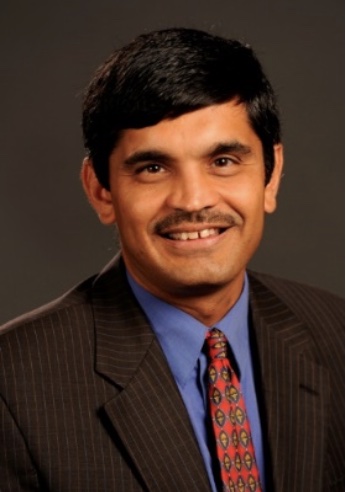Chandra Bhat, Department of Civil, Architectural and Environmental Engineering, The University of Texas at Austin
This presentation is sponsored by ITS-Davis’ partnership with the Pacific Southwest Region University Transportation Center.
Title
How might people spend time when traveling in a fully automated vehicle, and what effect might it have on the intensity of travel?
Time
1:40pm - 3:00pm
Location
1605 Tilia, Room 1103, West Village
Abstract
This paper undertakes a deep dive into the kinds of activities that individuals are likely to pursue when freed from the task of driving in the future transportation landscape of fully automated vehicles (AVs). Our study indicates that “productive use of time” is not necessarily always tied with activities such as work and study; rather, being able to partake in relatively “chill” activities (such as sleeping, relaxing, and gazing out the window) is also considered as good use of time. This suggests caution in the interpretation of what are traditionally referred to as “productive” activities and also a need for scholarly restraint in the use of the label “multi-tasking” to exclusively refer to non-passive activities. We suggest that the field move away from subjective/ambiguous terms such as multitasking and “productive” activities, and adopt the more neutral label of “travel-based activity”. The results also support the notion that the option of opening up travel to pursue work/study activities may itself be engendering stress in individuals; that is, as the option to pursue “non-chill” activities increases in an AV environment, that itself may produce angst in individuals and lead to less enjoyment in travel. This also highlights a need to examine travel-based activities in the broader context of emotional well-being and quality of life. Indeed, AVs may further erode into our time of tuning-out from the “chatter” of routine life and make it less possible to partake in “calm and mindless” activities. Finally, our study cautions against the use of simple and uniform (across individuals) value of travel time savings (VTTS) factor modifications to study AV impacts on travel, and emphasizes the need to examine, and recognize the variation across individuals in, the types of activities pursued during travel.
Biographical Sketch
 Dr. Chandra R. Bhat is an expert in the area of transportation and urban policy design, with far reaching implications for public health, energy dependence, greenhouse gas emissions, and societal quality of life. Methodologically, he has been a pioneer in the formulation and use of statistical and econometric methods to analyze human choice behavior. His current research includes the social and environmental aspects of transportation, planning implications of connected and automated smart transportation systems (CASTS), e-commerce and information and communication technology (ICT) impacts on the activity and mobility behaviors of consumer and upstream supply chain providers, and data science and predictive analytics. He is a recipient of many awards, including the 2017 Council of University Transportation Center (CUTC) Lifetime Achievement Award in Transportation Research and Education, the2015 American Association of Civil Engineering’s (ASCE’s) Frank Masters Award, and the 2013 German Humboldt Award. He was listed in 2017 as one of the top ten transportation thought leaders in academia by the Eno Foundation. He is a top-cited transportation engineering researcher. He currently serves as the Editor-in-Chief of Transportation Research – Part B.
Dr. Chandra R. Bhat is an expert in the area of transportation and urban policy design, with far reaching implications for public health, energy dependence, greenhouse gas emissions, and societal quality of life. Methodologically, he has been a pioneer in the formulation and use of statistical and econometric methods to analyze human choice behavior. His current research includes the social and environmental aspects of transportation, planning implications of connected and automated smart transportation systems (CASTS), e-commerce and information and communication technology (ICT) impacts on the activity and mobility behaviors of consumer and upstream supply chain providers, and data science and predictive analytics. He is a recipient of many awards, including the 2017 Council of University Transportation Center (CUTC) Lifetime Achievement Award in Transportation Research and Education, the2015 American Association of Civil Engineering’s (ASCE’s) Frank Masters Award, and the 2013 German Humboldt Award. He was listed in 2017 as one of the top ten transportation thought leaders in academia by the Eno Foundation. He is a top-cited transportation engineering researcher. He currently serves as the Editor-in-Chief of Transportation Research – Part B.
Thank you for your interest in the UC Davis Institute of Transportation Studies. Subscribe today to keep up with the latest ITS news and happenings.
